Home » Education » REU Program » REU Application
Now Accepting Applications!
Be a part of our Summer 2024 cohort! Submit your online application by March 1, 2024, to receive full consideration for the program.
Click here to apply nowQuestions? Contact UsA complete online application includes:
1
Filling out all required fields in the application form.
2
1–2 page personal statement about your interests & goals.
3
A (unofficial) transcript from your current institution.
Your personal statement is an important part of your application.
It is an opportunity for you to demonstrate your interest in CDA REU, share your career aspirations, explain any issues that might be seen on your transcript, and for you to distinguish yourself from other applicants. Get creative and tell us your story. Below we provide writing prompt suggestions and tips to help you write your personal statement
These suggested prompts are a starting point to center and guide your writing to help develop your personal statement.
- What sparked your interest in technology and/or agriculture?
- Describe an experience that has impacted your professional interests.
- Define your understanding of the role of technology in agriculture. How do you anticipate that changing in the future?
- What do you most want to learn about that you don’t have access to in your current educational program?
- What are your academic and professional goals, and how would participating in the UIUC CDA REU program help you achieve those goals?
- If you have computer skills (for example, knowledge of programming languages), please be sure to include this in your resume and describe it in your statement.
- Demonstrate your understanding of the specific program and why you are interested in participating in a research experience. Focus on what you want to do and what you want to learn.
- Structure your statement like an essay – have an introduction, body, and conclusion.
- Aim for around 250-500 words (1–2 pages, 12pt font, double-spaced). Be concise, but give yourself enough words to tell us who you are. Be honest and professional.
- Use your own words. Don’t plagiarize.
- Go to your Writing Lab for help – typos and grammar errors will reflect badly on your application and demonstrate your level of commitment to the program.
- Ask a faculty member and/or friend to read your statement and give you comments.
- Check out the Institute for Broadening Participation’s guide for “Writing Strong Essays & Personal Statements” for additional tips
IMPORTANT: It might be difficult, but it is important to discuss issues and gaps on your transcript in your personal statement. Use this space to explain the challenges, how you overcame them, and how they strengthened you. A compelling explanation will make your application more competitive. Without an explanation, the selection committee may have concerns about your ability to succeed in the program.
Acceptance Process
Admission offers for the 2024 CDA REU program will be emailed on April 1, 2024. Students will have until April 15th to accept or decline the offer. After all positions are filled, any remaining applicants will be notified by email that the program is full.
Once an REU program offer is accepted, students are obligated to complete the summer fellowship (all 10 weeks) and meet the program requirements. The number of applications accepted depends on funding availability.
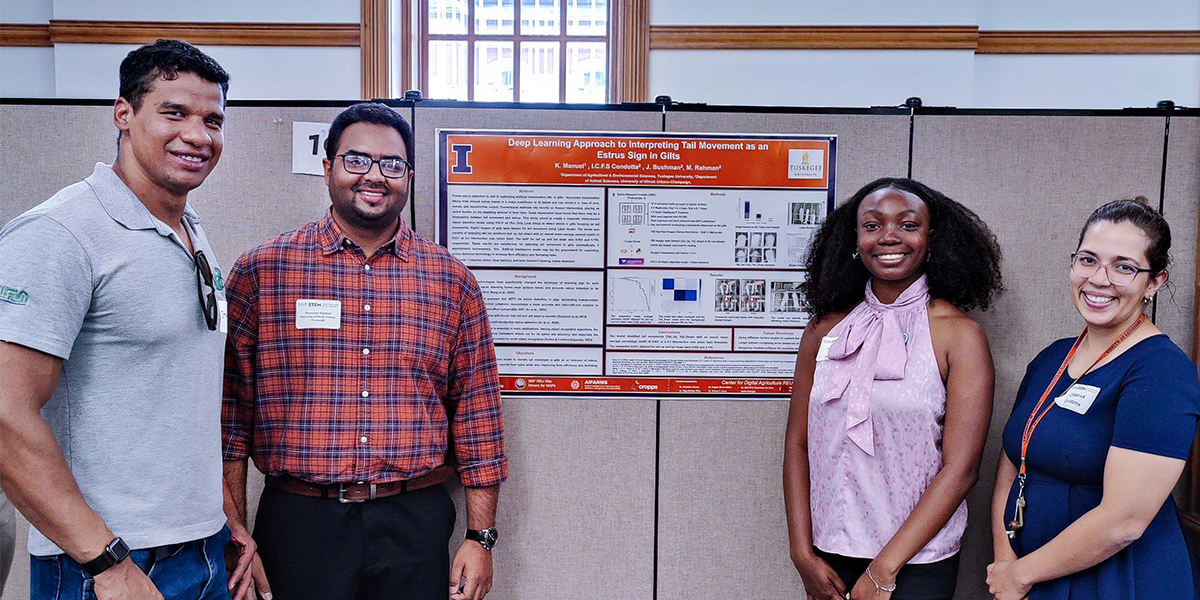
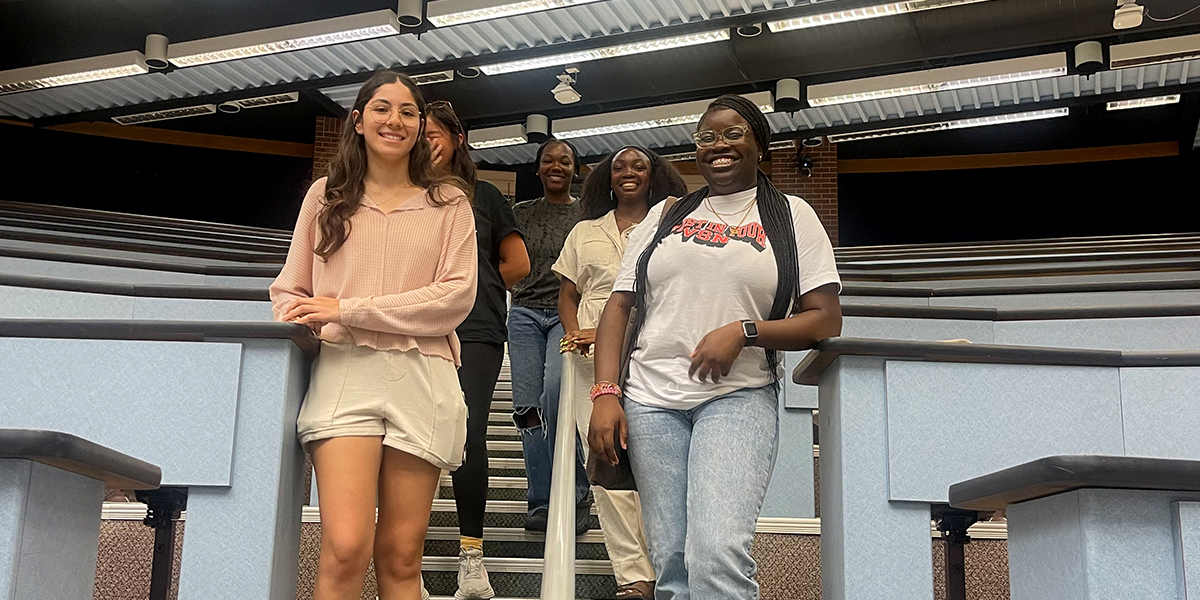
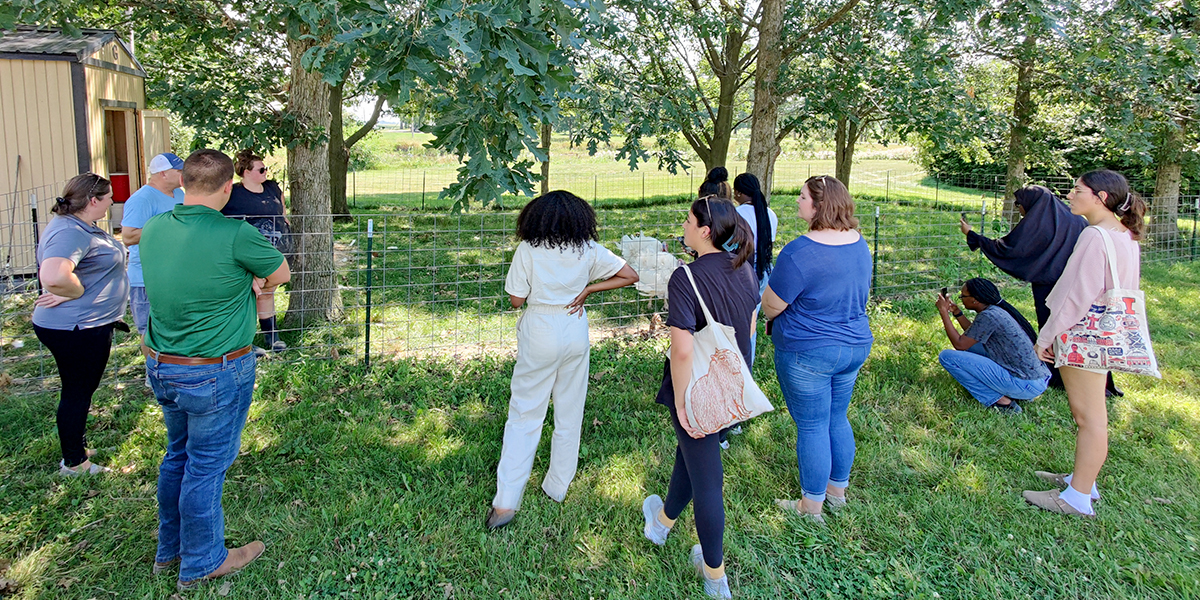
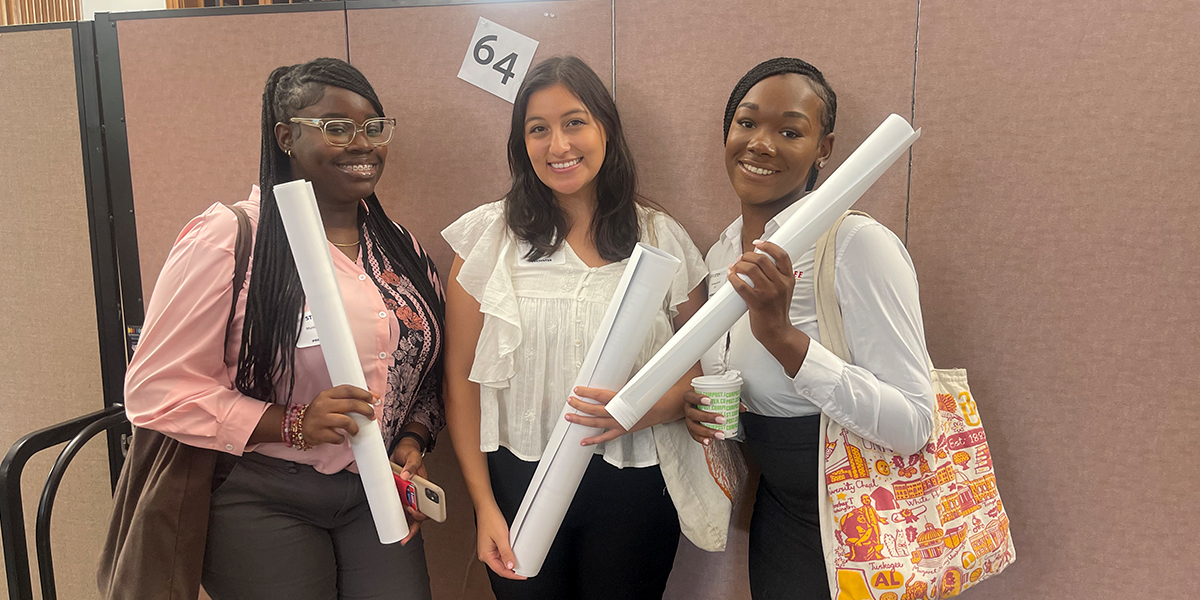
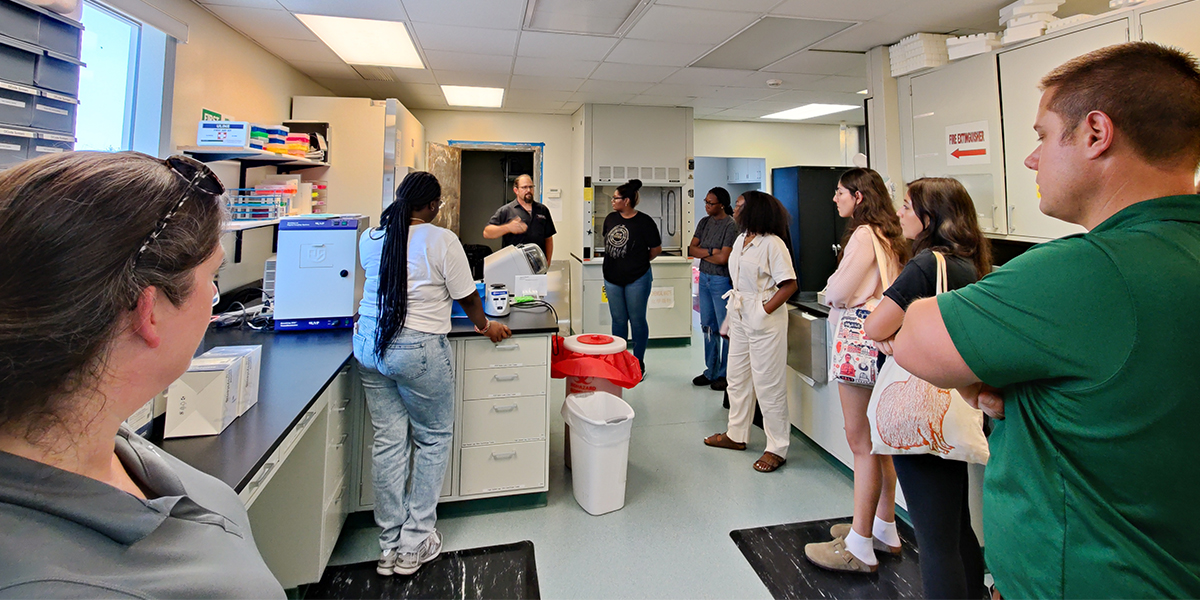
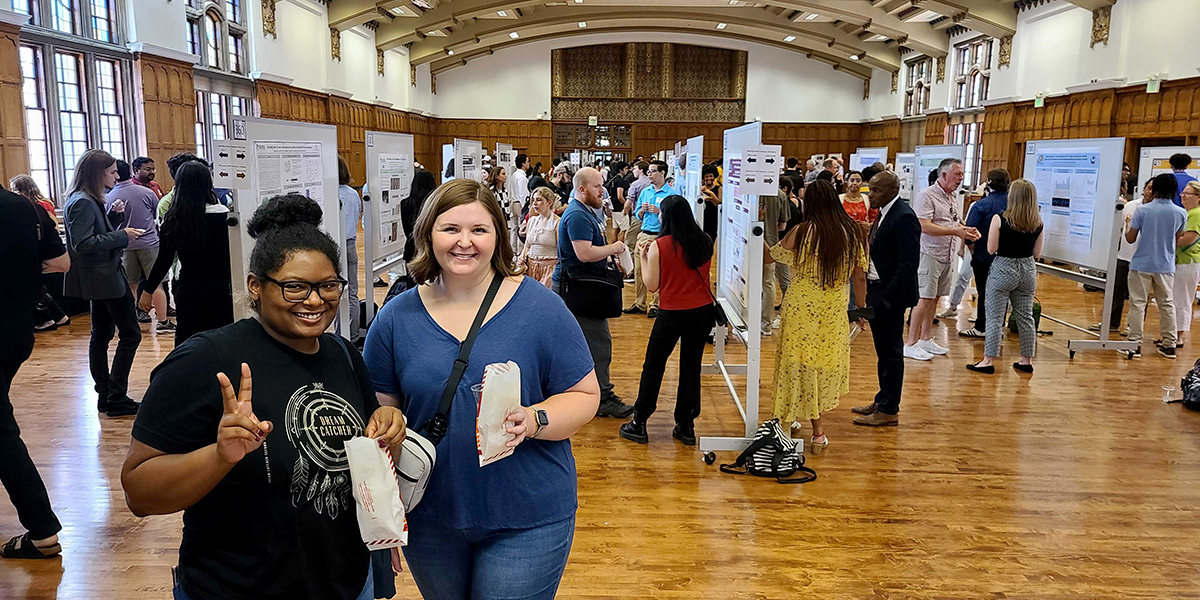
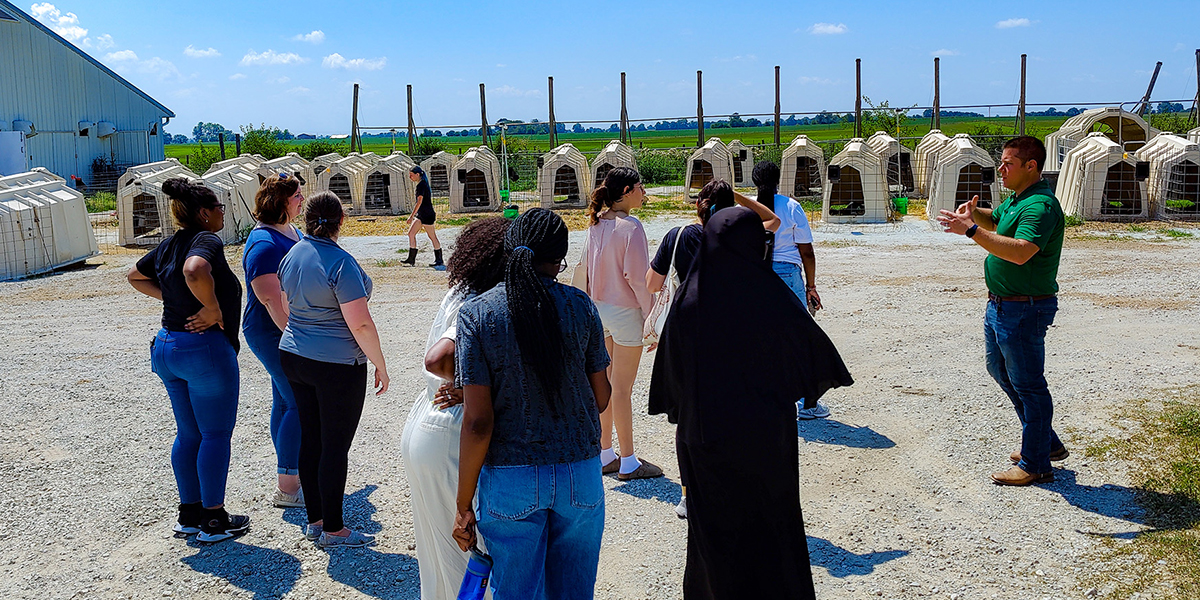
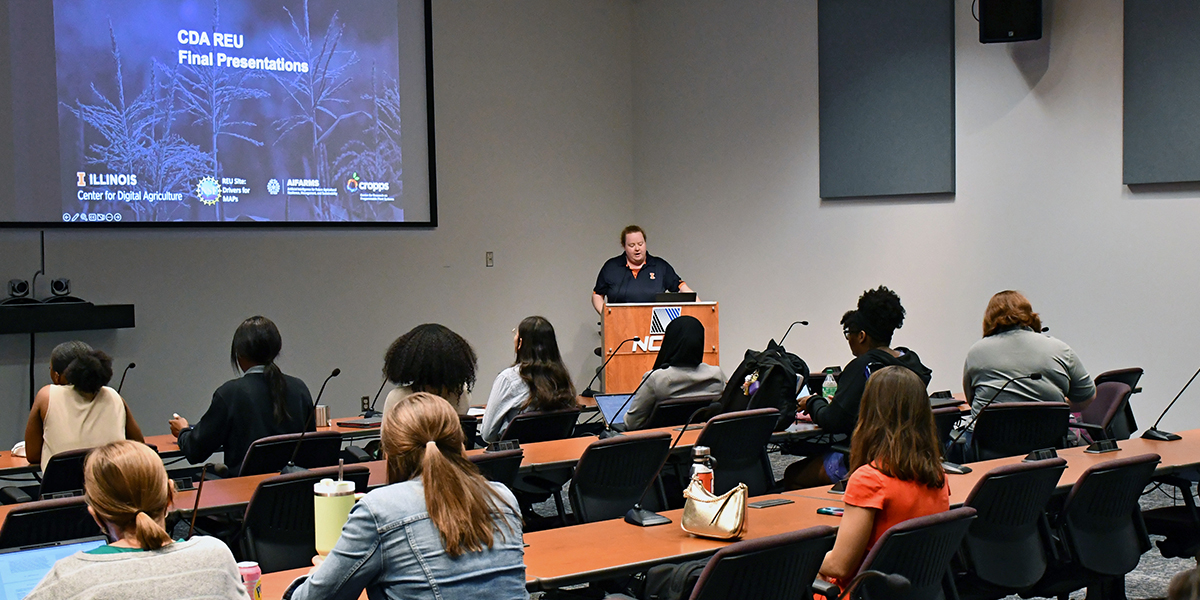

Program Details
All students who apply to the UIUC CDA REU must be:
- Citizens of the United States or permanent residents.
- Enrolled in a degree program (part-time or full-time) in engineering, computer science, crop/plant science, biology, animal science, agricultural sciences, technology management, or other related majors.
- There is no minimum GPA requirement for the program.
- Available full-time during the program.
- At least 18 years of age by the start date of the program.
Other considerations for student applicants:
- Students do not need to have previous programming experience. Students will be matched to projects taking past experience into account.
- Preference will be given to students who have completed 48 hours of class by the program’s start. All other student levels are welcome to apply and will be considered.
- Priority will be given to populations historically underrecognized in STEM, including those from minority-serving institutions (MSIs) such as Historically Black Colleges and Universities (HBCUs), Hispanic Serving Institutions (HSIs), and Tribal Colleges and Universities (TCUs).
- Priority is also given to students from colleges with limited research opportunities for undergraduates, including community colleges. Participation by current University of Illinois Urbana-Champaign students is restricted, and applications from students from institutions outside of the University of Illinois Urbana-Champaign are given priority.
- Participation in the CDA REU program is a full-time commitment. To get the most out of this opportunity, participants are expected to work at least 36 hours per week on research projects and up to 4 hours per week participating in professional development events, attending program-wide activities, and other engagements that are designed to support your growth as a developing scientist and engineer.
- Throughout the program, REU participants will attend seminars on scientific communication and will work closely with their research mentors to create and then present both an oral and poster presentation of the research performed during the summer. Presentations and any written components are required.
- CDA REU students are required to participate in the one-week AI Foundry for Ag Applications and Hackathon and attend and present at the AIFARMS Annual Conference.
- Participation costs for these events are covered by CDA REU.
- Students will be mentored through the process of preparing for these events.
- We provide on-campus housing for all participants. This housing is arranged by the CDA REU Program Coordinator. If there are any concerns about on-campus housing that might interfere with your ability to participate or are a barrier for your application, please email Christina Tucker to discuss alternative housing options.
- Our program is intentionally designed to support participants by providing opportunities to conduct research and grow as developing scientists and engineers. This is achieved through a series of weekly seminars and professional development events embedded in CDA REU. Attendance and participation in these events is required.
How much are REU students paid as part of the summer program?
The $7000 summer stipend and meal allowance will be distributed equally across 3 monthly payments. Stipends are distributed to students once a month via direct deposit on June 16th, July 16th, and August 16th.
I am an international student studying at a U.S. university. I am not a citizen and do not have a green card. Am I eligible for your program?
Funding for the REU program is restricted to U.S. Citizens and U.S. Permanent Residents (i.e., Green Card holders). If you are neither a citizen nor have a green card, we cannot provide funding. If you have support from another source, please reach out to the Program Coordinator about opportunities to participate as an unfunded REU student.
Is this program open to current U of I students?
Any U of I student who meets the requirements regarding citizenship and undergraduate status is eligible. Priority is given to students outside of the university.
I am a senior and will graduate in May. Am I still eligible for your program?
Students who have received their bachelor’s degree by the time the program starts are ineligible. Students who have finished a 2-year degree and are considering pursuing a 4-year degree are encouraged to apply.
Can I take a part-time job and/or take summer classes while participating in the REU program?
Participation in CDA REU is a full-time commitment. Outside employment or enrollment in summer classes is highly discouraged.
I have external/personal activities that may result into missing a day or two of the program. Will this be a problem?
In general, participants are expected to be in residence during the full period of the REU program, May 30-Aug 4th. Occasional absences may be approved in advance with the Program Coordinator.
Can I bring my pet?
The on-campus housing facilities do not allow pets. Service animals are allowed with documentation. If there are any concerns about on-campus housing that might interfere with your ability to participate or are a barrier to your application, please contact the Program Coordinator to discuss alternative housing options.
I’m only a first-year/freshman or sophomore. Can I apply?
Preference will be given to students who have completed 48 hours of class by the program’s start. All other student levels with a strong interest in digital agriculture are welcome to apply.
Do I need a car?
You are not required to bring or acquire a car, but having your own transportation for the summer can have advantages, especially if your research involves working at field sites off the main campus. However, if you do not have your own transportation, arrangements can be made to support your access to field sites.
Champaign-Urbana has a great public bus system that REU participants can ride for free, so access to general needs on campus and around town is not restricted without having your own car.
Do I need to know computer programming?
Computer programming knowledge is not required. We will pair students with projects based on interests and skills. Training will be provided for background that is needed for research projects.
I don’t know if I want to go to grad school. Can I still participate in the REU program?
The REU program is a great place to explore if you are interested in research. You will also learn skills you can apply in industry if you decide graduate school is not a good fit for you.
I have a question not mentioned here. Who do I contact?
You can email Program Coordinator Christina Tucker lyvers2@illinois.ed
